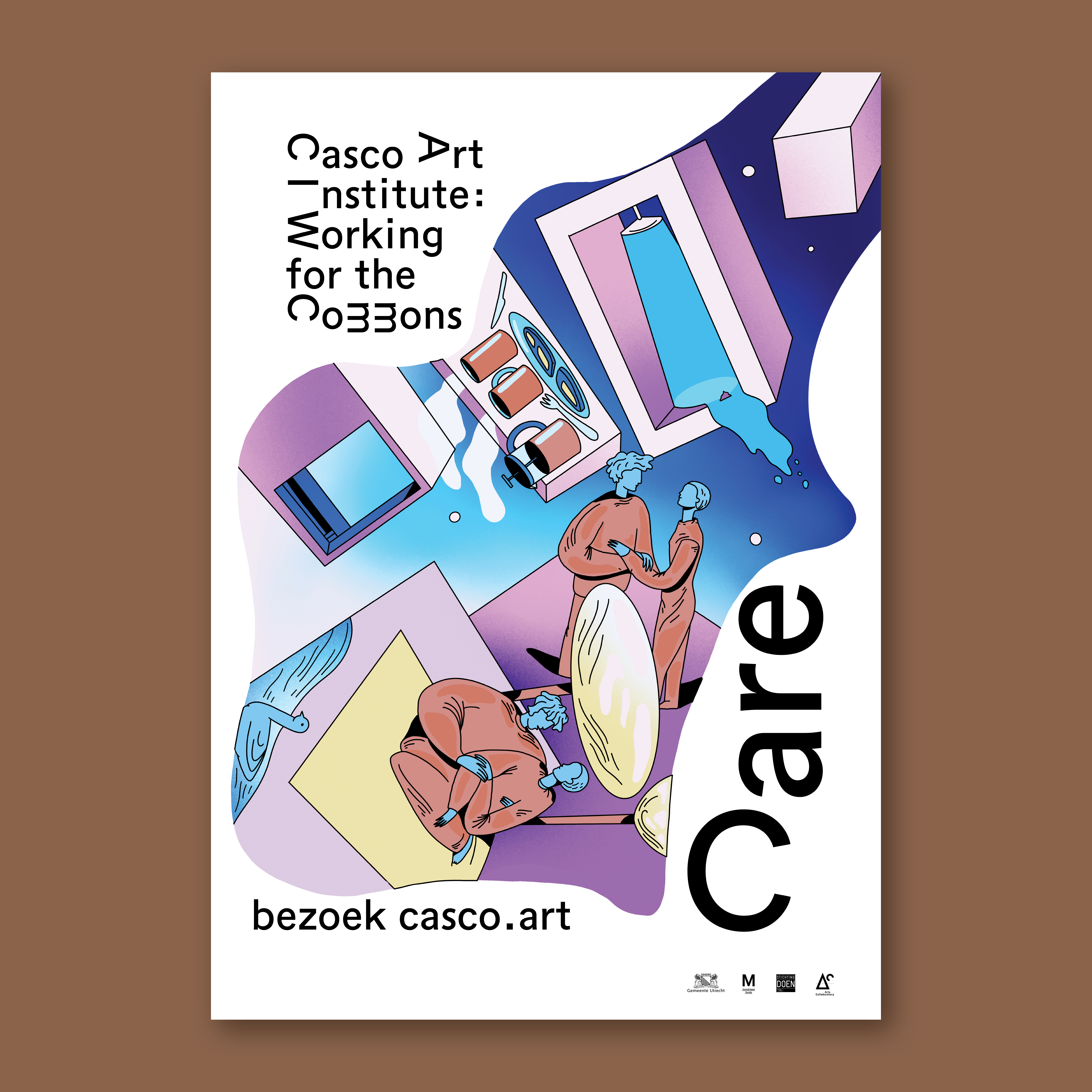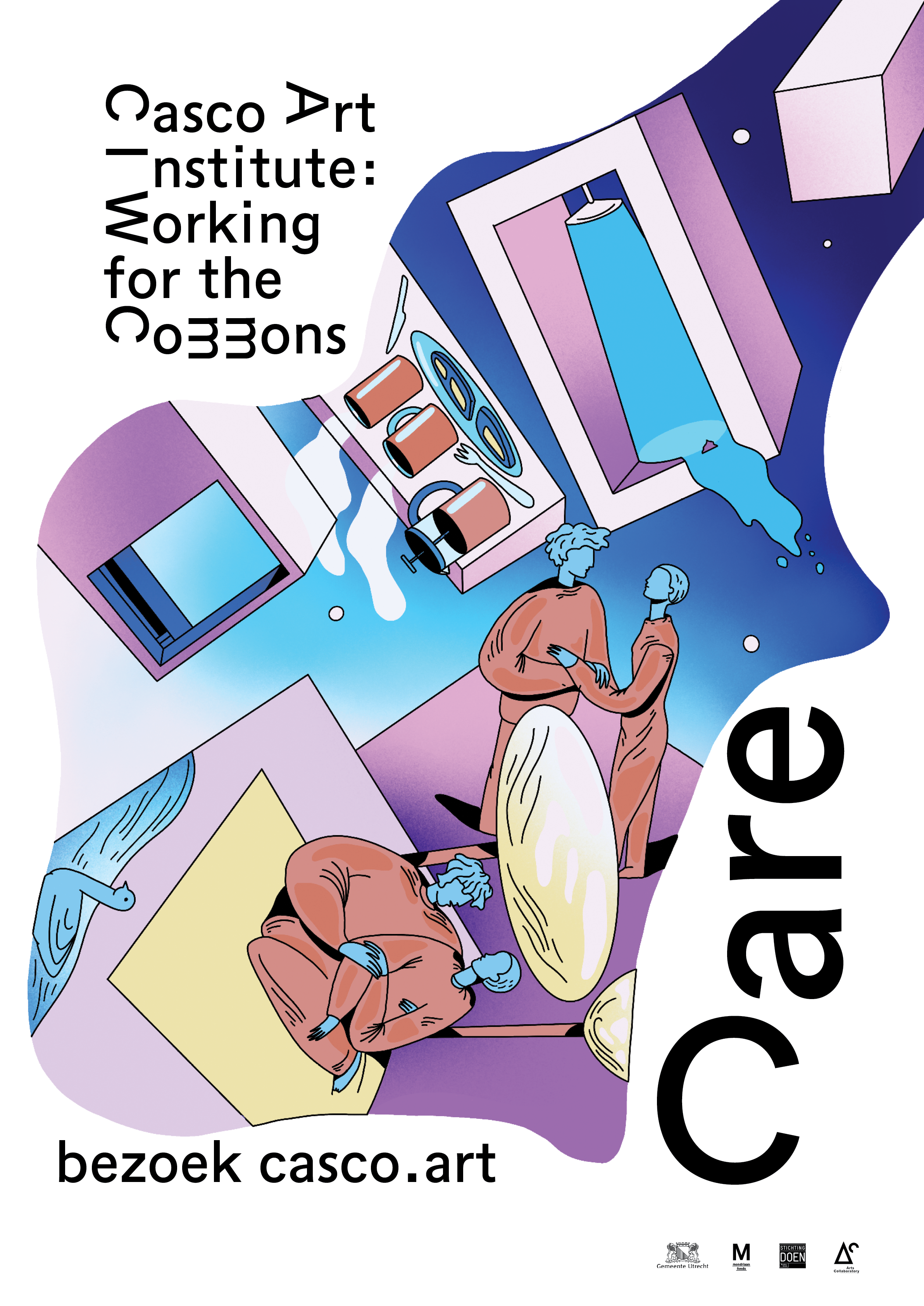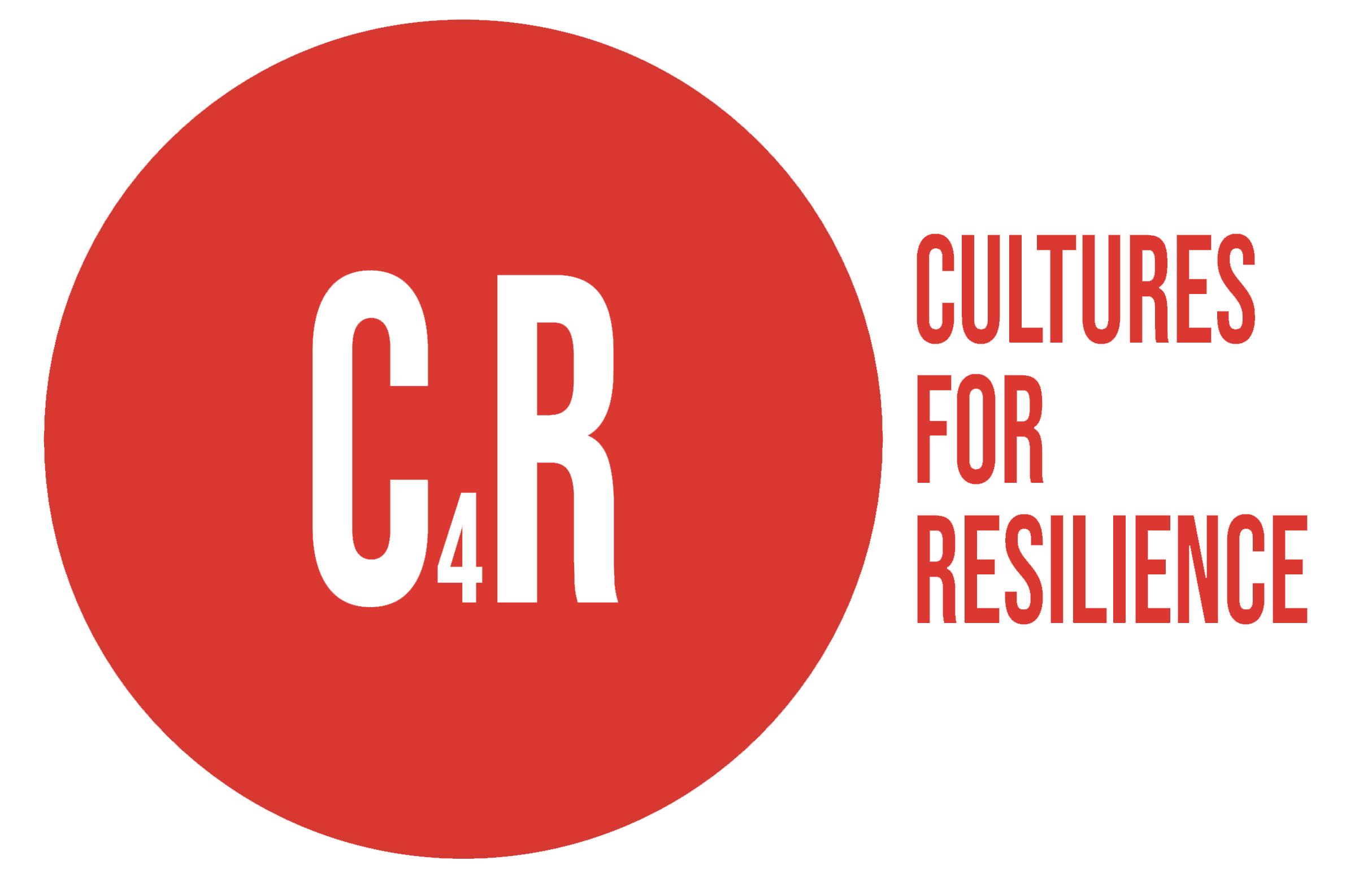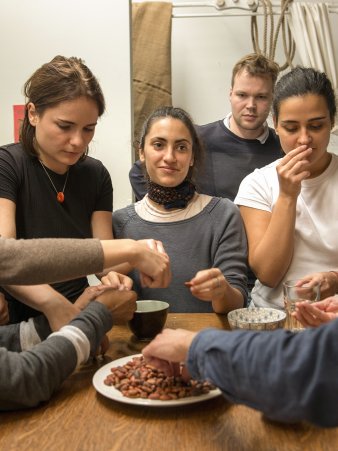“…treat people as oneself […] be curious of their stories […] be grateful for the open hearted sharing”
By Yuchen Li of Weaving realities
Our society demands constant high-level productivity and efficiency. Care, instead, is deemed as irrelevant or even a sign of weakness in this ever “expanding”, “growing” and “progressing” world. However, art is here to actively question and critically re-think the way we organize our lives.
For me, art is also to create or facilitate a time-space where we can practice the principles that we hold dear of. It takes a lot of imagination, creativity, courage, perseverance and faith. One principle we hold dear of is Care. Care reflect- ed in the way our collective work with others is to treat people as one self, before attaching to the tags - guest, performer, artist, professor, interviewee, refugee, curator, director, janitor, intern and so on. Who are they? Am I curious about their stories? Am I grateful for the open-hearted sharing before thinking how they are relating to my work? Do I act with reciprocity to their attention, contribution and trust?
All these questions serve as constant reminders and self-reflection in my head. Of course, this is not easy. In our collective, we work in communi- ties in resistance, such as activists against Forced Disappearance in Mexico, indigenous Arhuacan in Colombia, but also with academic professors and university students in the Netherlands. Not everyone’s voice can be heard or valued equally by the system we live in. But when I am humbled to listen, I have learned so much: the Mexican activist impressed me with her courage to fight, some professors open up about their own struggles in putting theory into practice, the wisdom of the Arhuacans brings me to another dimension of understanding the world. And the work that comes from care has the true power to affect and influence the others.
My partner in Weaving Realities, Aldo, went to the Normal School in Ayotzinapa Mexico in 2016, hoping to find personal stories of the 43 disappeared students. The school was flooded with people from outside who were interested in the case, journalists, artists, scholars, activists. Aldo met with two women at the school entrance who offered to give him a tour in town. During the conversations Aldo learned that they were also family members of one missing student Christian. Mayra is the aunt of Christian who actually brought him up. Laura, the cousin. Aldo wanted to collect stories from the families but Mayra refused “You are just the same type of people that we will only see once and never again.” Many people came with their own questions, got their “answers” or “materials”, published under their name, and never came back. It was until Aldo let go of his questions by truly listening than he gained the trust of the family members who later shared with him their experiences. Aldo kept in contact with the people he met there, including Mayra. They greeted each other and shared new events in each other’s lives once in a while. Three years later, Aldo invited Mayra and Laura to come to Amster- dam and collaborate with Weaving Realities for 3 months, to share their pain and struggles through cooking together. This time Mayra said yes.
It was interesting for me to meet Mayra and Laura in person, after all, I have read and written about them so much in the project proposal. For 3 months, we lived next door, we cooked together on the weekend at Rijkakademie, and we even organized a salsa lesson. It was the most natural interaction, without any thoughts like “I want them to produce this work”. We were getting to know each other as friends. Some colleagues warned us “it is like you are paying for their trip in Europe. They don’t have enough work to do.” But it can’t be calculated like that, can it? What is work, what is care? Are these two separable? At the end, we organized several beautiful events and perfor- mances together. The stories we shared in the events came from heart-to-heart conversations, in the most unofficial occasions. Nobody is able to plan with these touching moments. It comes from a long-last- ing sense of care for each other, which lasts till today.
The C-words campaign is inspired by the format of Casco’s third Annual Assembly We Owe Each Other Everything that takes place online in December 2020. Participants were invited to reflect on their collective working practice by choosing a word beginning with C.
Together these formed C-words for the Commons and were a starting point for the different Assembly groups to discuss the diverse stories and experiences that stemmed from these words. The outcomes of the Assembly mapping workshops were to highlight new ideas, relationships and creative entanglements to adopt when working collectively.
In 2021, Casco is launching a poster-campaign that illustrates six C-words (Coin, Community, Care, Climate, Cosmos and Culture) by six Utrecht-based illustrators. The posters are disseminated all around Utrecht and online especially aiming to appeal to a younger audience to engage with these urgent issues and to visit Casco’s website to learn more about the Commons through art.
The C-words campaign identifies ecological, social and economic urgencies from which discussions, projects and coalitions can be derived in order to imagine new ways of resiliently tackling these issues through collaborative practices and thinking.
Resources



